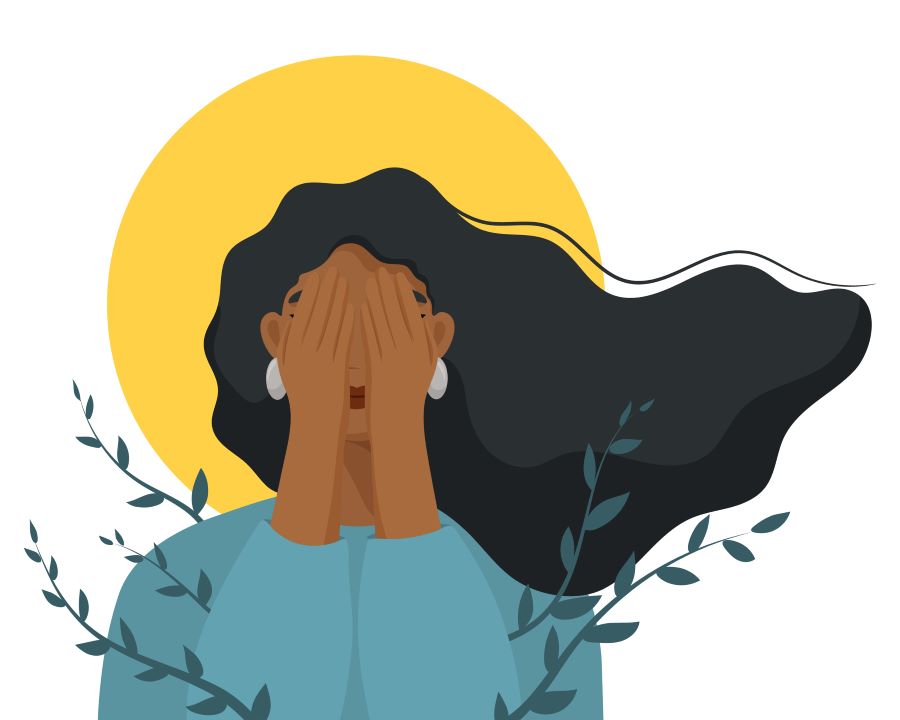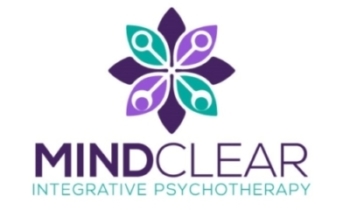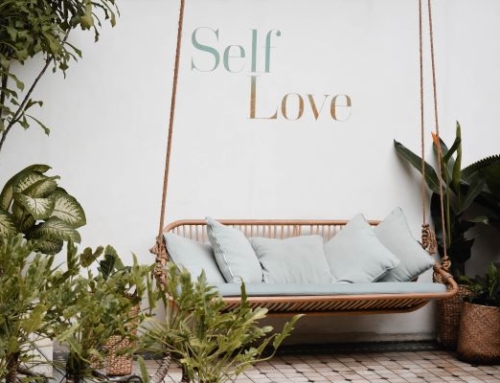8 Reasons You’re Feeling Anxious Even Though Everything is Fine

You spend your whole week scrambling to get all your work done, working late some nights, rushing to clear your plate completely so that come the weekend you can FINALLY relax. Saturday morning comes, you sleep in, order breakfast, take a deep breath so thankful that you have nothing to do. After a bit of all this relaxing and taking it easy you start to wonder: Why am I so anxious???
All too often, people find that the more things are generally fine, the more on edge they start to feel. In fact, the less there is to worry about, the more you start to panic! Fret not, this doesn’t actually mean that something must be wrong that you’re just missing. Often the silence and calm simply gives way to what is happening beneath the surface internally. The following are eight reasons that you may feel anxious even though all is generally well.
Need for Control
At its core, anxiety is almost always related to issues around control. Whether it’s the annoying behavior of your spouse, your boss’s frustrating inability to promote you when you’ve been working so hard, or the desire to prevent bad things from happening, control is at the core of why you get that racing heart, shaky, edgy feeling. This can be especially true when particularly bad things have happened in the past or your identity and self-worth is wrapped up in your ability to accomplish things.
The effort to gain control consequently increases the more you feel anxious. This is because the need for control often is a result of feeling fear, powerlessness, and/or stress. When you try to control things that are out of your control, however, this results in MORE stress, fear, and powerlessness.
Of course, you need to be on alert for threats to safety and to avoid complacency. At the same time, you also need to recognize the limits of what you can control. Acceptance of what you can and can’t change is key to allowing your body and mind to let go just a bit. This can be really difficult in a society that bombards you with the message that you always should be doing more and that you should never ever feel pain or suffer.
Overstimulation
American culture, especially New York City culture, prides itself on speed and the individualistic need to always being doing something cool. Further, the current techno-centric lifestyle of modern society creates the concept in the body that a high level of stimulation is the norm. TV, phones, games, etc., are highly stimulating to the nervous system, revving your body up like a drug.
If that weren’t enough, work culture tells you that you should be at high levels of stress all the time, overworking, dedicating your life to your job, getting all your meaning in life from your career, so that when there’s nothing to stress about, you believe you’re doing something wrong or falling behind. Not to mention the social media messages that you may internalize. When things are fine and there’s not a whole lot to do, it may seem “boring” or like something is wrong. Worse, what is there to post about if you’re just sitting still living a content life?
Slowing down can be key to quashing anxiety, yet also can feel excruciating. In the 1980’s, the “slow movement” started partly in reaction to the global rise in fast food. Taking your time and slowly engaging in various activities is also a form of movement meditation. The practice is geared towards developing more mindfulness and contentment by appreciating each moment for what it is rather than being in over-drive all the time. When everyone around you is going 100 miles an hour, though, you may find it near impossible to stick to the slow lane.
Wanting Reassurance and Praise
Sometimes too much of a good thing can backfire. While positive feedback can be motivating and just plain feel nice, needing constant praise and reassurance actually creates and reinforces anxiety. You don’t learn to trust yourself. You never develop an internal sense of pride and confidence. In the absence of constant positivity, your brain registers things as “bad.”
While children and students in school are often praised for the most minor of accomplishments, this rarely, if ever, happens in the adult world. If you developed the expectation that praise is deserved then you are surely to be very disappointed and will likely take this personally.
Your perception of self also plays a lot into the need for reassurance. If you experience imposter syndrome or are chronically critical and filled with shame towards yourself, you might look to others to combat this. When you don’t get that reassurance, you’re left with what lies beneath.
This is also directly related to difficulties in being able to tolerate uncertainty.
Difficulty Tolerating Uncertainty
The human brain is designed for efficiency and survival. Your brain is always looking to make quick categorizations, for things to be black and white. Unfortunately, when life doesn’t fit into a neat box and there are no clear answers, the brain can register this as stress. You literally need to train your brain to realize that uncertainty is not dangerous.
Uncertainty can be especially intolerable when you have a lot of negative self-beliefs and/or self-doubt, have been rejected or even abused in the past, and/or you are in an unpredictable environment. The space of grey is like a Rorschach test; the ambiguity allows for projection of all your deepest fears and beliefs about yourself and the world.
Ruminating on the Future
You’ve set up everything so that your weekend could be free from stress and sooooo relaxing only to find yourself worrying about all the things you need to do next week. Things are fine today but what about that upcoming presentation, dinner with your mother-in-law, early morning meeting, laundry piling up, that dust in the corner, ohmygodwhatisthatspotonmyleg?! Sound familiar?
When things are going well, you might find yourself so desperate to cling to the goodness that all you can do is worry about how it might be taken away. In turn, you never get to enjoy anything! The practice of mindfulness is not about fancy apps, shiny stones, Lululemon, or having no thoughts (you’d be dead!). It’s about training your brain and body to be with what is. Right now. To gently challenge the ruminations and distractions and really take in the present moment without clinging or trying to control it. This is a practice for a reason; for most, this is an incredibly difficult skill that does not come naturally.
Unhealed Trauma
When you’ve been profoundly hurt and feared for your life, your body pretty quickly learns to be on high alert. If the trauma was chronic, like child abuse or war, teaching your body that you are safe now is an act of futility. Being in this hypervigilant state, however, tends to result in finding danger where there is none. Things become heightened, conflict ensues, and trauma-based fears and beliefs get reinforced over and over. It’s a vicious cycle that only compounds over time.
Healing from trauma is possible but takes time. Part of that process requires a bottom-up approach that addresses the physiological arousal that is fight/flight. Without this, your body will trick the brain into believing that there is danger even when there isn’t. And, because the brain is hard-wired for survival, not rationality, the body will win every time.
Existential Dread
Humans are ostensibly unique in their acute awareness of death. When things are fine, you might find yourself starting to contemplate the meaning of life, what might go wrong in the future, and what will happen when you and/or your loved ones die. Most people don’t want to die, yet every single one of us will. The search for eternal life is also a tale as old as time.
Modern society teaches that meaning can be found in work, accomplishments, and proving how special and unique you are. If you have a name for yourself, you will live on at least in others’ minds! These things are superficial, however, and based in ego. While it feels great in a moment to receive accolades and adoration, the feeling never lasts. What is needed, instead, is a greater focus on what gives a deeper sense of purpose. Almost always, this comes from community, love, generosity, helping others, and engaging in hobbies that no one else may ever see.
It’s Normal
As stated before, the brain is highly developed for survival. Current society is the safest for humans (not so much other animals!) then it’s ever been. Evolution has taught us that we need to be on the lookout for lions, tigers, and bears (oh my!). Even though no wild animals are likely to attack, and that you are safe right now, your brain is not adept at sitting with that reality
No one wants to be ok with the idea that bad things are going to happen and, more often than not, there’s nothing you can do about it. It’s also really difficult to get our most primitive brain to realize when enough is enough. Throughout most of human’s existence in the last 200,000 years, scarcity and famine was the norm. It’s only in the last couple of centuries that excess is standard. Think about that: you are up against almost 200,000 years of training!
Maybe cut yourself a break sometimes. Anxiety is the human condition. It only stands out as odd when up against a world in which all basic needs are met. Adjusting to things being fine is actually quite scary because what happens when and if it isn’t!?
Practices have existed probably as long as humans that teach you how to develop acceptance, to slow down, and to distance yourself from your automatic thoughts and judgments. Meditation, mindfulness, yin style yoga, Tai Chi, and other centuries old solutions are not ever going to satisfy the need for immediate gratification nor to get rid of suffering. Rather, accepting that suffering is part of life, gaining space from judgment and criticism, re-focusing on what gives you deeper meaning, like relationships and spirituality, untangling your self-worth and identity from ego-based concepts like accomplishment and status, moving away from extremes, and finding contentment in the banal will, over time, allow you to finally find that relaxation you’ve been looking for and allow things to just be fine.









